20 Tips to Prevent a Shady Mechanic From Taking Advantage of You
Do you worry your mechanic is trying to rip you off? Maybe they’re speaking gibberish or using fear as a tactic to get you to have unnecessary work done so they can charge you more.
Though most repair shops are ethical, there are some bad apples who try to take advantage of the vulnerable or those lacking automotive knowledge.
Here are 20 tips for avoiding dishonest mechanics, and automotive rip-offs as a whole.

Read Also: Top 20 Things Every Car Owner Should Know
#1 – Look Up Reviews
One definite advantage of living in the technical age is that reviews for most businesses are now easily accessible on the internet. Websites like Yelp and Google My Business allow users to access endless reviews of any establishment, with the click of a mouse or tap of your finger.
Before visiting any auto repair shop or dealership service department, browse a number of these reviews, checking for any indication of questionable business practices.
#2 – Know Your Rights As a Consumer
It is important to understand that you have certain rights as a consumer. You are entitled to decline any service that you do not feel is necessary, or that you would rather opt out of. A shop cannot conduct any work that is not authorized or that you do not give consent to have done.
Avoid buying into a questionable language such as “you have to” or “this is mandatory”. Any services that are to be performed should be thoroughly explained to you before work begins.
#3 – Phone a Friend
If you don’t feel comfortable gauging the truth of what you are being told by a mechanic on your own, ask a more mechanically savvy friend or family member to come along with you.
This person can help you separate fact from fiction, making sure that you’re not being misled, misquoted, or misrepresented.
#4 – Ask To See Faulty Components
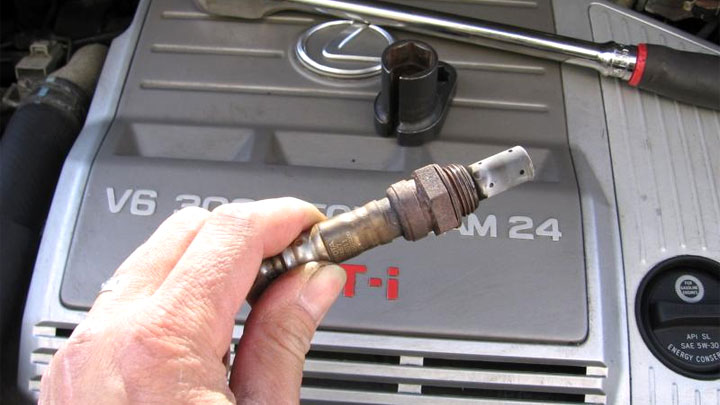
If you are told that a certain component has failed on your vehicle, ask to be shown the component in question, and to be given an explanation of how, exactly, the component has failed.
This is especially true in situations where news of this nature is unexpected.
#5 – Mark Filters In an Identifiable Manner
One excellent way to keep quick lube shops honest is by marking your vehicle’s filters (oil filter, air filter, cabin filter) in an identifiable fashion with a permanent marker.
You can then inspect these filters after service is complete, to see if they were actually changed, or if your vehicle’s old, premarket filters are still installed.
One of the most common scams is where a dishonest technician shows you a dirty engine air filter or cabin air filter that came from a different car while you’re in the waiting area despite them not even inspecting the filter in your car.
They’re counting on the fact you’ve never inspected your filter or plan on doing so once you leave the shop.
#6 – Ask To Be Contacted Before Any Additional Work Is Done
If you drop your vehicle off at a shop for repair, request to be contacted before any additional work is done.
This not only ensures that no other work is done, aside from that which has been quoted, but also allows you to ask for an “up-front” quote on any work that is recommended as an additional service.
#7 – Get Multiple Quotes On Bigger Repairs
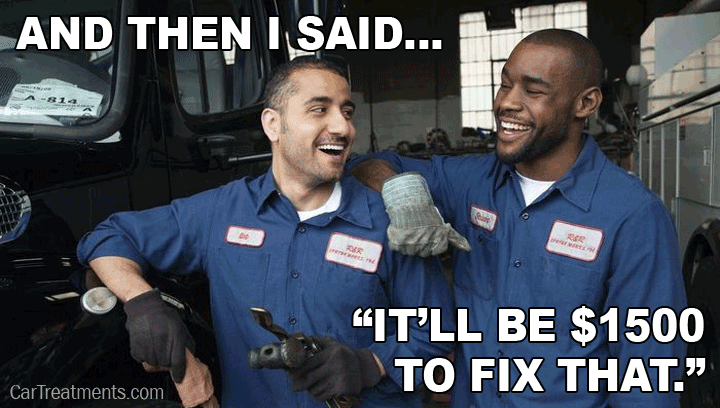
When anticipating the need for substantial work, make sure to get quotes from multiple shops. Any quote that is outlandish in relation to all others is likely a scam, to at least a certain degree.
Some shops significantly mark up parts to boost their profits, making schemes of this nature easily detectable when receiving numerous quotes.
#8 – Ask For Itemized Receipts
Before agreeing to any repairs, inform a shop’s service writer that you will require an itemized receipt. If they ask why, say it’s for business purposes.
In at least certain instances, this will deter shady mechanics from overinflating costs, or tacking on unnecessary charges, as they will be easier to detect and dispute.
#9 – Watch When Possible
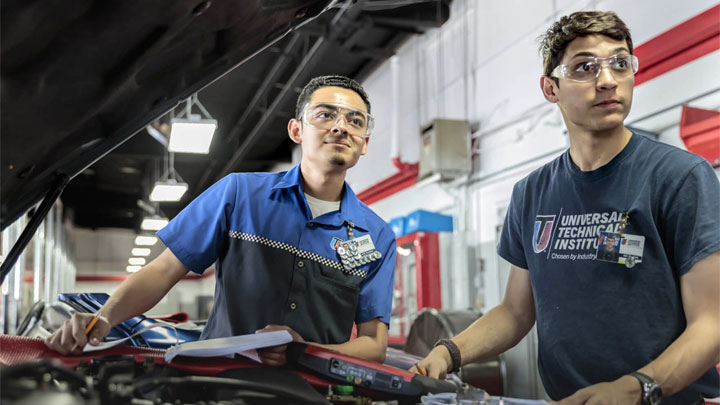
Many shops will leave their bay doors open during the entirety of the work day, during the warm season. Use this to your advantage, by staying within eyesight of the automotive technician or mechanic working on your vehicle.
Pretend to step out for fresh air or answer a phone call. It doesn’t really matter what you step outside to do, as long as the technician in question is under the impression that they are being watched.
#10 – Always Get a Written Warranty
Whenever you’re assured that a particular repair will be backed by a parts/service warranty, make sure that all such claims are provided in writing.
Nothing is worse than being forced to fall back on a warranty of this type, only to be told that you never were covered by any type of warranty condition to begin with.
Related: Received a Motor Vehicle Service Notification? (DO THIS)
#11 – Know Your Vehicle’s Service Intervals
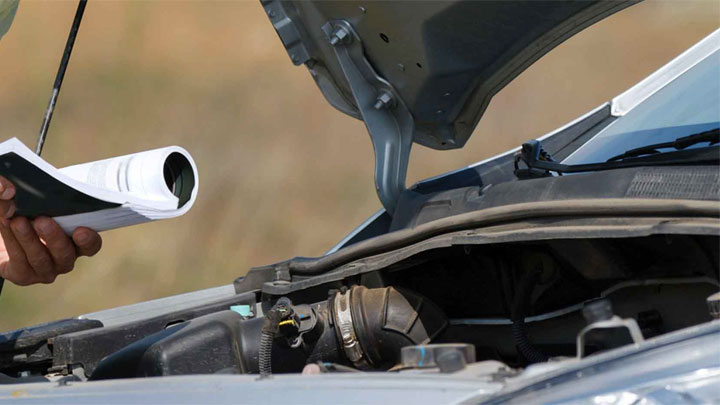
Do not be pressured into purchasing additional services at a quick lube shop, just because you are told that a particular service is recommended at your vehicle’s current mileage.
The recommendations of your vehicle’s manufacturer should serve as the only true source of guidance on such matters. Get to know these recommended service intervals (found in your owner’s manual), and abide by them.
#12 – Watch Out For Scare Tactics
Most automotive professionals are perfectly capable of conveying the importance of a repair without trying to scare customers into a knee-jerk purchase.
If a mechanic attempts to scare you into a repair by saying that your engine will “blow up” tomorrow, or that you will likely get in a wreck, their motives are often questionable.
The worst of the worst are when unethical mechanics try to take advantage of the elderly using scare tactics.
#13 – Never Agree To Uncapped Diagnostic Fees

Some shops make a habit of charging hourly diagnostic fees that are not capped or limited in any way. This is almost always a bad deal for the consumer, as it effectively leaves a shop with a blank check that they can make out for any amount they see fit.
If a particular job cannot be quoted initially, or after a pre-agreed upon diagnostic fee, go the other way.
Even better, get yourself a basic OBD2 scanner so you can easily scan your vehicle for any trouble codes when a Check Engine light presents itself. Now you’ll be armed with the knowledge of what is actually wrong with your car.
#14 – Ask To Speak To the Technician
At some shops, service writers are paid a commission. Therefore, it is not unheard of for service writers to push repairs or services with a sense of urgency that could otherwise wait.
If you feel that this might be the case, ask to speak to the technician working on your vehicle. In most busy shops, a technician will be far less likely to push unnecessary repairs, than an unscrupulous service writer.
#15 – Downplay Your Lack of Auto Knowledge

If you don’t know much about vehicles as a whole, keep this tidbit of information to yourself.
While it is fine to ask all necessary questions, openly discussing the fact that you know nothing about your vehicle serves as a dinner bell of sorts for mechanics with questionable motives. After all, a shady mechanic’s worst nightmare is an informed car owner.
#16 – If You Have Questions, Ask
If you are unsure of what you are being told by a mechanic or service writer, ask as many questions as come to mind. Those with good intent should be more than happy to answer any questions you might have.
On the other hand, technicians or service writers that repeatedly dodge questions, are likely suspect.
#17 – Research Parts Costs
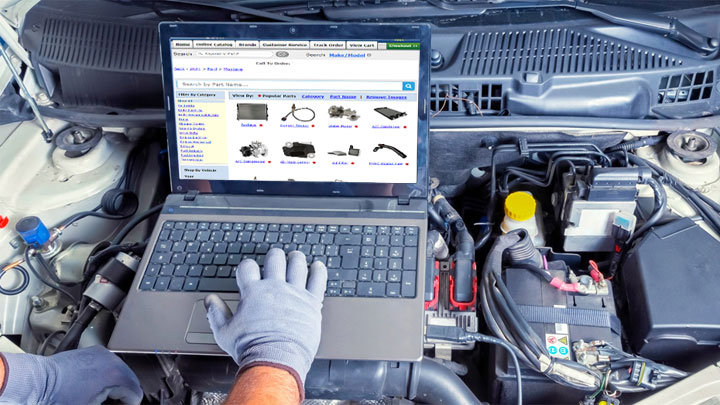
If you are taking your vehicle to a shop for a scheduled repair, research the cost of parts associated with such repairs in advance.
To see if you are being taken advantage of, figure a markup of 10%-20% on the average cost of the component that is to be replaced, and then compare this number to that which has been quoted as the anticipated cost of parts.
If the quoted number greatly exceeds the pre-figured cost, ask for further explanation.
#18 – Ask About Labor Rates Upfront
All shops have designated labor rates on which they base the cost of their work. This rate is usually posted somewhere within the service advisor department or front office of the shop itself.
Most reputable shops will be happy to quote their hourly labor rate to any prospective customer. If a shop proves unable or unwilling to provide this information, there is likely a reason.
#19 – Conduct Your Own Research
At times, it pays to investigate the issue that your vehicle is experiencing, before taking it to the shop. While you might not be able to fully diagnose the issue at hand, you will at least be better able to determine if what you’re being told at the repair shop actually makes sense.
This essentially prevents you from flying blind and being forced to accept all that you are told on a whim.
#20 – Trust Your Gut
As with anything, your initial gut feeling about the business dealings of a particular shop carries merit. If something simply does not feel right, there is probably a good reason.
Keep this in mind, and avoid overriding instinct at all costs. Your vehicle is an investment worth protecting, and should always be treated as such.
- 5 Symptoms of an EVAP Leak (and Repair Cost) - Apr 27, 2024
- P0480 Code (Symptoms, Causes, and How to Fix) - Apr 19, 2024
- Car Temperature Gauge Stopped Working? (Here’s Why) - Apr 15, 2024

